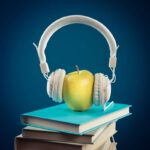Developing Speaking Skills across the Curriculum
Sometimes students can learn to express clearly articulated thoughts better in settings that are not formally called public speaking. We will consider ways to develop students’ oral skills as they answer questions, explain problems, give reports, read aloud, and engage in discussion.



Leave a Reply